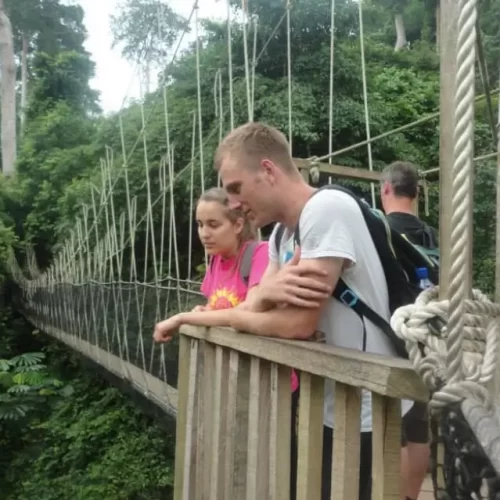
Our Volunteer and Culture Tour is for diasporans and those interested in other cultures. SFLIG Volunteers offer a unique opportunity for Africans in the diaspora to connect with their roots. This is done through a tailored volunteer and culture tour immersion. This volunteer program helps participants to better understand African culture, traditions, and customs. Volunteers also learn about the slave trade, and tourist attractions while contributing to local communities. The Volunteer and Culture tour aims to foster a mindset of African human development goals. SFLIG Volunteers aim to promote a more integrated continent in a globalized world.
During the program, participants will have the chance to live with indigenous families. This helps volunteers learn the traditional family system, cooking, childbirth, traditional names, etc. Volunteers work 2-3 days a week in schools, hospitals, orphanage homes, and on community projects. The rest of the days are reserved for cultural tours, traditional dance lessons, and local lifestyles. Volunteers learn about the history behind the slave trade, castles, forts, and traditional symbols. Traditional naming ceremonies are performed for volunteers who wish to have local names.
SFLIG Volunteers and cultural tours include visits to historic centers in the various regions in Ghana. These include Manhyia Place, Komfo Anokye Stool and Yaa Asantewaa Museum, Bonwire Kente, Ntonso wood carving, and Lake Bosomtwe in the Ashanti region. The Cape Coast tour will take participants to Cape Coast Castle, Elimina Castle, Assin Manso Slave Village. Before arrival, participants will receive an overview of the 16 regions of Ghana to help them choose their preferred interests.
The minimum length of the project is one week, and the cost varies depending on one’s interests. By joining our Volunteer Culture tour program, participants can expect an enriching and transformative experience. This helps to broaden volunteers’ perception of Africa, particularly Ghana. It’s an opportunity to connect with the land, the people, and the culture in a meaningful way.